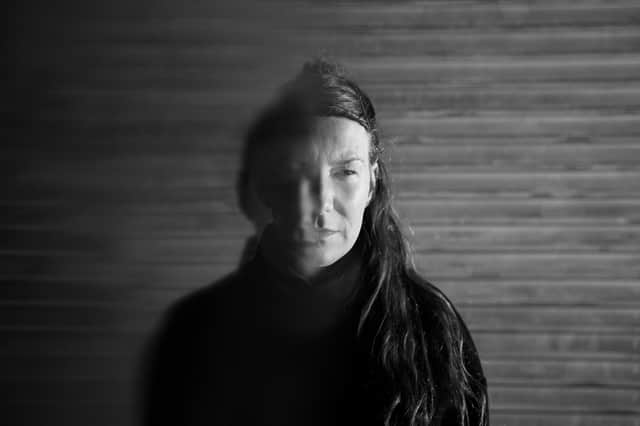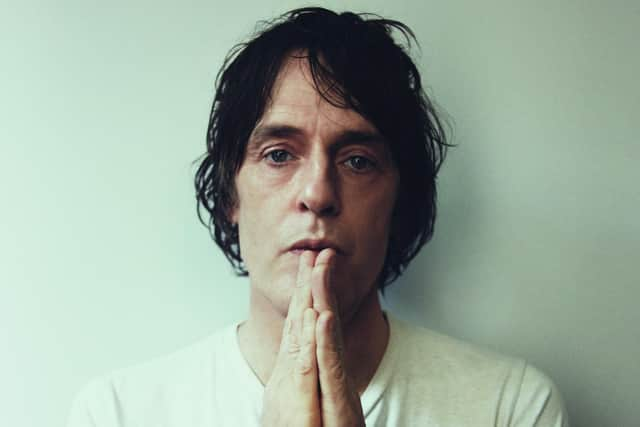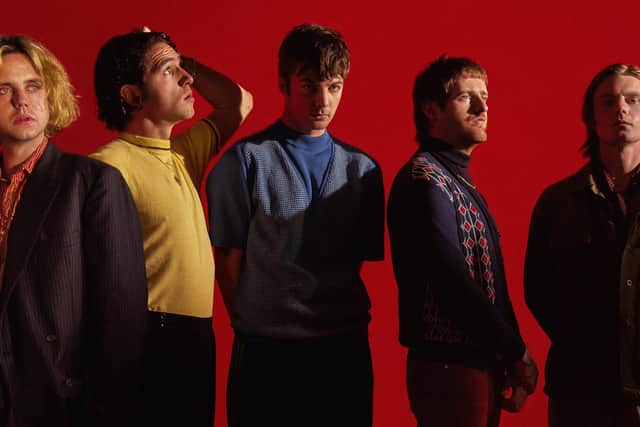Album reviews: Kathryn Joseph | Spiritualized | Fontaines D.C.


Kathryn Joseph: For You Who Are the Wronged (Rock Action) ****
Spiritualized: Everything Was Beauticul (Bella Union) ****
Fontaines D.C.: Skinty Fia (Partisan) ****
Anyone who has seen Kathryn Joseph play live will have noted the contrast between her intense, hypnotic piano-led invocations and her leavening irreverent humour, a tricky line she appears to walk with natural ease. Now the Glasgow-based singer/songwriter walks that light/dark tightrope in her music. Her third album moves on thematically from the agony and ecstasy of her love life to the relationships of those she cares about, particularly those trapped in emotionally abusive situations through lockdown.
Advertisement
Hide AdAdvertisement
Hide AdJoseph offers succour throughout for you who are the wronged even though the wronged may not know she is addressing them. But she approaches such heavy matter with a light touch, having chosen to switch to electric piano as her instrument of choice. The soothing chime of Fender Rhodes changes the tone and volume of her songs, softens the vocal and creates more space in the work. The listener may welcome that sonic breather when they tune into Joseph’s sometimes horrific lyrics, whether delivered in a deathly whisper on the burning of us all or with lullaby repetition on what is keeping you alive makes me want to kill them for.
The serpentine titles tell the story, some with more economy of expression than others – bring to me your open wounds, for example, is clearly no party, flesh and blood is a sweet song of visceral revenge, while long gone is a little more extrovert, with backing chorus and a glitchy pitter-patter pulse under the glistening keyboards before it comes to an abrupt halt.
Dark lyrics and light music is a common dynamic device in music; here it makes for an odd but audacious combination. Musician/producer Lomond Campbell, who recorded Joseph at his converted schoolhouse studio in Fort William, must take some credit for this prettiest of horror shows.


Spiritualized know a thing or two about cleansing cathartis through melancholy music. Like Joseph, however, there is greater levity in their ninth album, Everything Was Beautiful, even if it is titled after Kurt Vonnegut’s Slaughterhouse-Five.
The pandemic lockdown was a familiar state for introverted mainman Jason Pierce. “I felt like I’d been in training for this my whole life,” he says. What has emerged, however, is an open and sociable celebration of an album, featuring thirty musicians recorded in eleven studios.
Pearce immediately hits us with the outright upbeat positivity of Always Together With You, a pop gospel number with rousing orchestration and acid guitar. Psychedelic Krautrock number Best Thing You Never Had (The D Song) features exultant bursts of brass, and there are even echoes of Paul Simon on the accessible cosmic country of Crazy.
Fans seeking a bittersweet fix can feast on Let It Bleed (For Iggy), which recalls the tender pop of Lou Reed at his most vulnerable, arranged with the widescreen ambition of Brian Wilson, while The A Song (Laid In Your Arms) and the ten-minute I’m Coming Home Again are more typical psychedelic blowouts.


Advertisement
Hide AdAdvertisement
Hide AdDistinctive Dublin band Fontaines D.C. have made their name with their own musical vernacular, blending a taut punk sound, smart socio-political poetry, cultural literacy and heat-seeking ambition which recalls a nascent U2.
Their superb third album Skinty Fia looks back at their hometown from their new base in London with expanded musical horizons. Jackie Down the Line is indie rock shot through with rich, twanging guitar lines and frontman Grian Chatten at his most tuneful and dangerous. There is menace in the soused swagger and keening guitar riff of the James Joyce-referencing Bloomsday, while the loose-limbed Roman Holiday is almost dreamy and The Couple Across the Way is a soulful lament on a failing relationship, accompanied only by the wheeze of accordion.
CLASSICAL
John Wilbye: Draw On Sweet Night (Coro) ****
John Wilbye (1547-1638) may not be the most prominent of the English Renaissance madrigalists, but his more personalised lifestyle, as a household composer to the rural Kytson family, shaped a style of writing that has a natural, spontaneous charm. He warranted representation in Morley’s seminal 1601 collection The Triumphs of Oriana. But otherwise his output was modest, mostly preserved in his two madrigal collections of 1598 and 1609. These performances by Robert Hollingworth’s I Fagiolini have a delicacy that matches the music’s textural sensitivities and soulful simplicity. Effectively a miscellany from Wilbye’s two collections, structure is achieved by I Fagiolini’s integral groupings that take us from the intimate fragility of the 3-part settings to the wholesomeness of such 5 or 6-part examples as the melancholy Draw On Sweet Night or playful Sweet Honey-Sucking Bees. Ken Walton
FOLK
Topette!!: Bourdon (www.topette.co.uk) ****
The bumblebee buzz that opens this album puts one in mind of an insect persistently bothering the characters of a Jacques Tati film, and there’s something of the same unbridled glee in Topette!!, an Anglo-French quintet. "Bourdon” means “bumblebee”, but also a bagpipe drone, and the distinctively reedy singing of the French cornemuse, played by Julien Cartonnet (who doubles on banjo), is allied to the diatonic accordion of Andy Cutting, along with fiddler James Delarre, acoustic bassist Barn Stradling and bodhraniste Tania Buisse. After that pesky prelude, Just Heavy is a purposefully advancing dance melody riding Stradling’s chunky bassline, while other tunes are lighter on their feet, a polka, for instance, swerving with gusto into an insistent Swedish halling. There’s a fine pairing of bourées, Winstanley’s and Les Trois Canards, while the album ends with wonderfully dolorous pipe tune, La Couturière. Jim Gilchrist